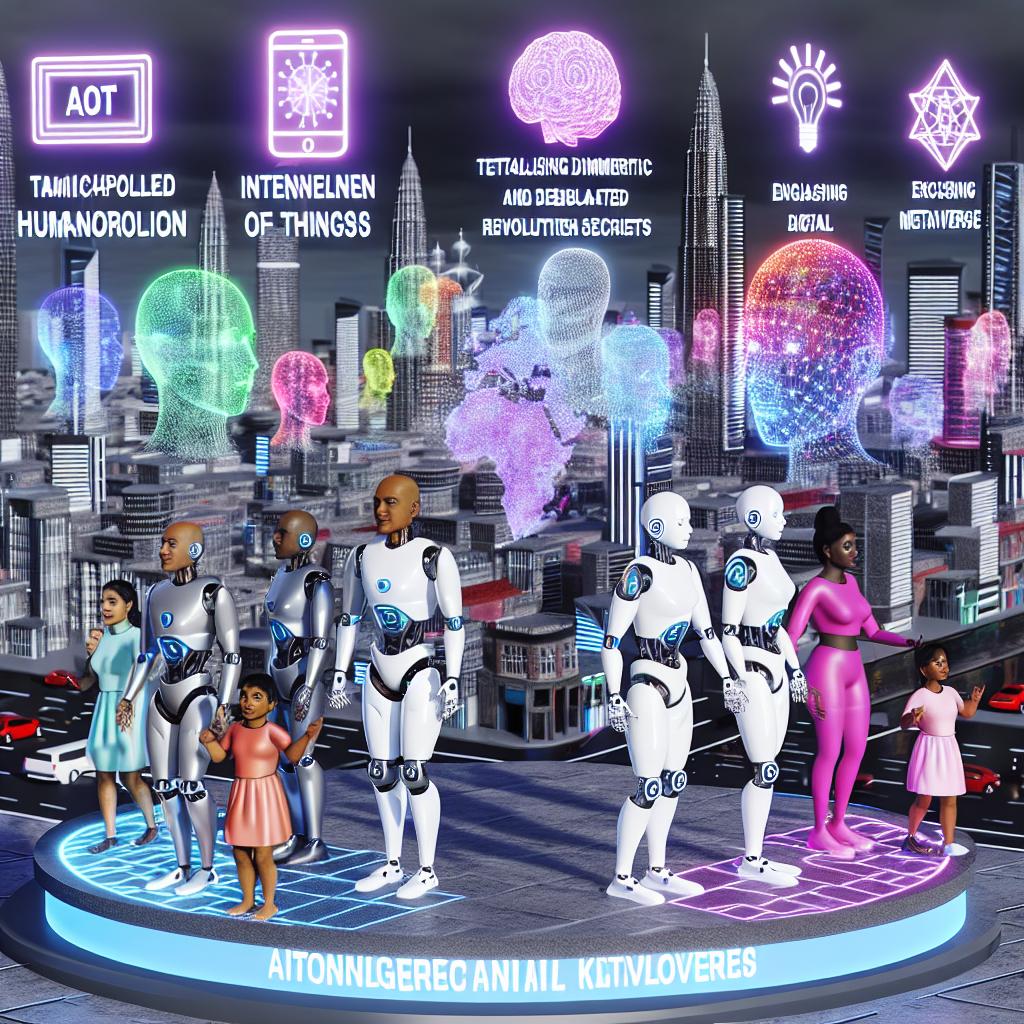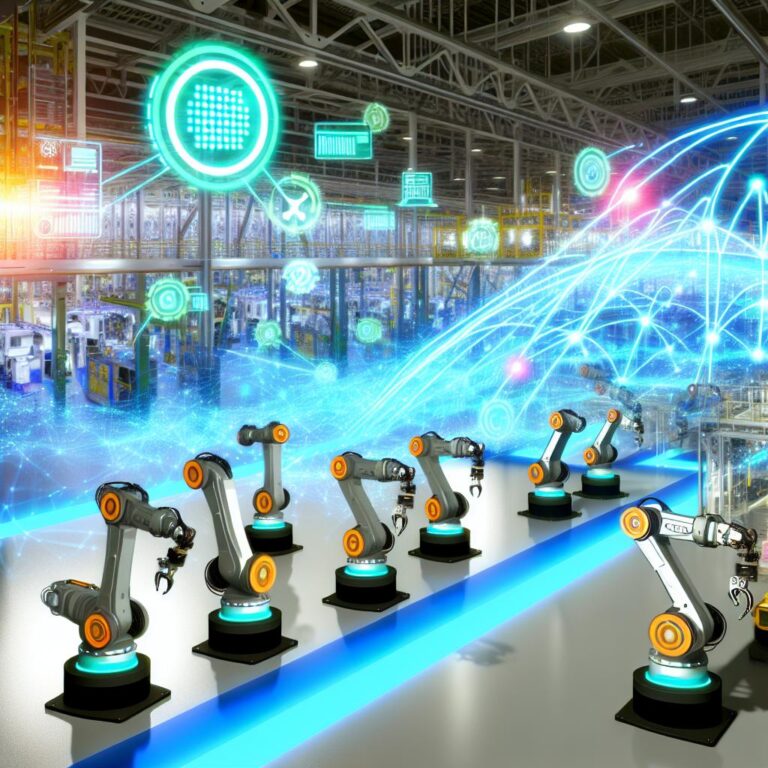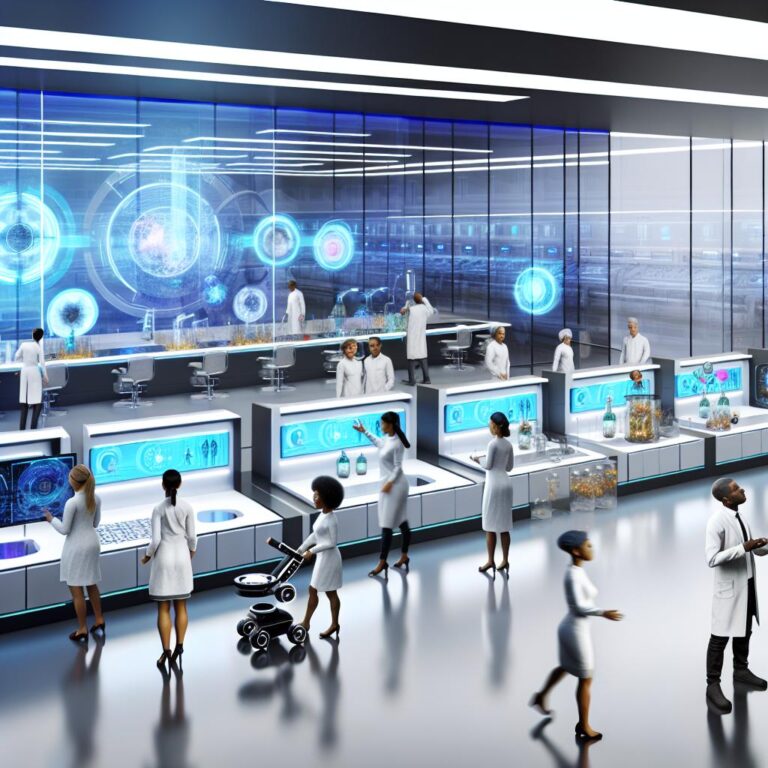Latest tech trends reshaping industries: How are they changing?
- AI transforms industries by automating tasks, improving customer understanding, and enhancing decision-making with data analysis.
- Automation through AI reduces errors and costs, improving productivity in sectors like manufacturing, HR, healthcare, and banking.
- IoT enhances manufacturing efficiency by predicting maintenance needs and managing inventories. It optimizes urban living with smart city applications like traffic and waste management.
- Security issues with IoT include potential hacking, requiring proper encryption and system updates.
- The Metaverse revolutionizes business by offering interactive experiences and digital goods, impacting shopping and entertainment, and enabling virtual events and meetings.
- Tech trends, including AI, IoT, AR, and cloud computing, are driving digital transformation, improving operations, customer experiences, and smart city development.
- Future AI advancements may include personalized medicine, self-driving transportation, and enhanced educational tools.
Ready to explore the tech trends reshaping our world? As an avid space and technology fan, I know how exciting it is to dive into Artificial Intelligence, the Internet of Things, and the Metaverse. These aren't just buzzwords—they're changing how we work and play. In this article, I'll break down how each trend is transforming industries, including how businesses are adapting, the future possibilities, and the security concerns we need to tackle. Let's embark on this journey together!
How is Artificial Intelligence Transforming Industries?
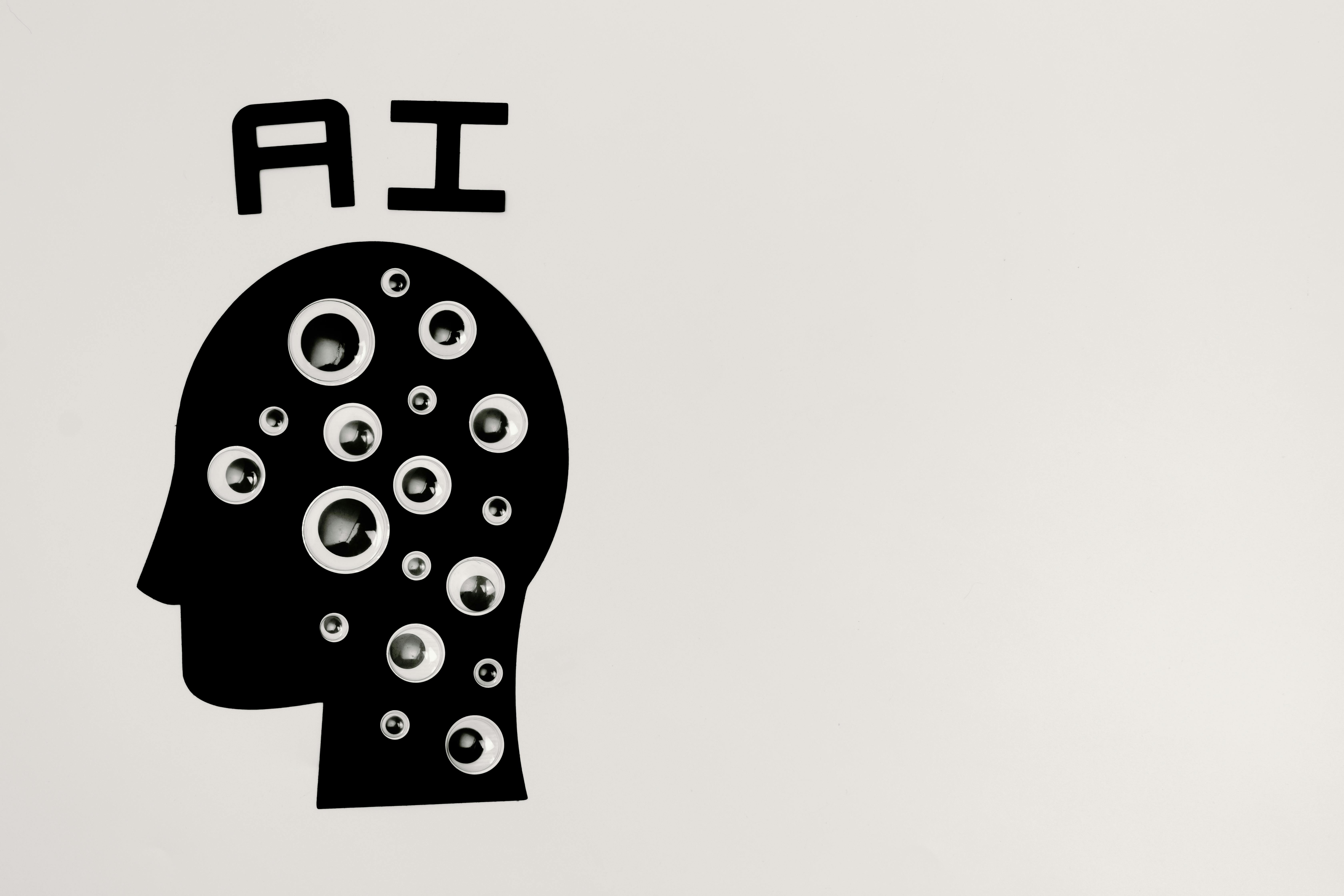
Artificial Intelligence (AI) is leaving a big mark on many industries. It's changing how businesses work and solve problems today. But how does AI play a role in business sectors? AI is used in many ways. Companies use AI to understand their customers better. Simple tasks that take time from workers are now done by AI. This saves money and makes work faster.
Machines and software can analyze big amounts of data and find patterns. This makes planning much easier for companies and decision-makers. AI-based chatbots, for example, help with customer service by answering questions quickly. This frees up staff to do more complex tasks.
How does AI-driven automation impact businesses? AI improves processes by reducing the need for human intervention. This means fewer mistakes and lower costs for businesses. AI takes care of tasks such as data entry and bookkeeping. In manufacturing, robots powered by AI can work 24/7. They don't need breaks and never get tired. AI-driven automation also improves the quality of products, which boosts customer trust.
Moreover, AI tools help in employee recruitment. They scan resumes faster than humans can. AI selects the best candidates for jobs, saving HR departments a lot of work. In healthcare, AI assists doctors by suggesting diagnoses based on patient data, and in banking, AI monitors transactions to catch fraud.
What are the future possibilities of AI technology? The future of AI looks bright. It's expected that AI will keep growing and help even more. One of the exciting possibilities is AI's role in personalized medicine. AI can analyze which treatment plan will work best for a patient based on their history. In education, AI can offer personalized study plans fitting each student's learning style.
The use of AI is also expected to become widespread in transportation. Self-driving cars, trucks, and drones could soon be common sights on the roads and skies. This has the potential to reshape industries like shipping and logistics. AI will also allow businesses to develop products faster than ever.
AI-powered software will continue to evolve and get smarter. This means businesses will be able to solve complex problems that once seemed hard. With AI understanding human emotions, predicting customer needs will become more accurate.
Businesses adopting AI have exciting futures ahead. The key is to stay updated and find ways to integrate AI into daily work processes. If we consider business innovation in the tech industry, AI stands out for its potential to bring creativity and efficiency.
AI's influence means big changes in how we work. As these changes unfold, some roles may become obsolete, while others will evolve to align with new technologies. This transformation will require education systems to adapt, focusing on teaching skills that pair with AI technology.
AI holds a vital role in reshaping how businesses operate. Its impact is vast, from boosting productivity to opening new future possibilities. Industries need to embrace these changes to thrive in an AI-driven world. The important part is using AI wisely to aid in creating value. AI learns and grows capable of improving life and business in countless ways.
How Does the Internet of Things Innovate Traditional Systems?
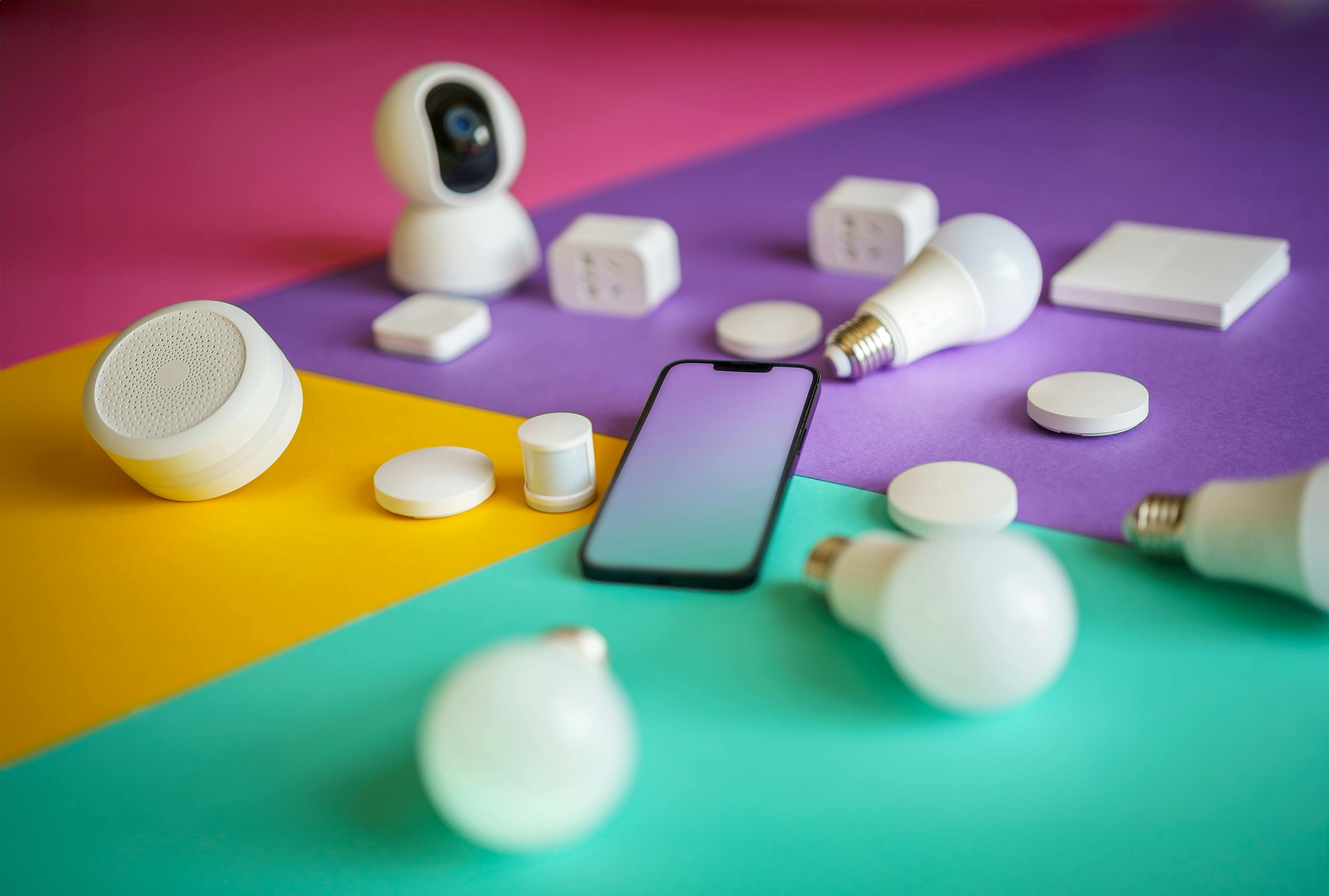
The Internet of Things (IoT) links devices to make them smarter. This technology touches many areas of life. It helps factories work better and tracks items. Factories look to IoT for more efficient manufacturing processes.
How is IoT integrated into manufacturing processes? IoT can monitor machine performance in real-time. Sensors in machines help find problems early. This reduces delays and keeps production going. For example, sensors can track the temperature of a machine. If the machine gets too hot, the system sends an alert. Workers can fix the problem before it causes a breakdown. This helps save time and money.
Another example is using IoT for inventory control. Sensors track items in a warehouse. They can tell when stock is low and send an alert to reorder. This means factories do not run out of parts. It also prevents over-ordering. Better stock control increases industry efficiency.
How does IoT connectivity enhance industry efficiency? IoT enables machines to talk to each other. When one machine finishes a task, it tells the next machine to start. This seamless communication cuts down on waiting times. Workers do not have to supervise machines constantly. They can use their time on more complex tasks.
IoT systems also offer insights into energy use. It tracks power consumption to find waste. For example, if a machine uses power when not in use, IoT can shut it down. This decreases costs and supports green initiatives.
What are the security concerns associated with IoT? While IoT brings many benefits, it also poses risks. More devices mean more entry points for hackers. This can lead to security breaches.
Each device needs protection to prevent unauthorized access. Hackers might breach a single device to access the entire network. This is a big concern for businesses.
Encryption is one way to boost security. It scrambles data, making it hard for outsiders to read. Regular updates keep systems safe from new threats. Companies must stay alert to protect their IoT systems properly.
Thus, IoT transforms industries, adding efficiency and complexity. It offers new challenges alongside its many advantages. Understanding how to integrate and secure it becomes key for growth.
What is the Metaverse's Role in Business and Entertainment?

The metaverse is changing how we interact with technology. It builds on virtual reality, making our online world feel more real. You might wonder, "How are businesses adapting strategies for the Metaverse?" The short answer: they are diving in with new game plans. Businesses are making virtual worlds where people can shop, meet, and play. Companies create virtual stores to showcase products in a 3D space. You can browse items just like in a real store. These metaverse developments help businesses reach more people in fun and engaging ways.
Metaverse Business Strategies
Companies need to think differently to succeed in the metaverse. Many are creating immersive experiences where users can interact with their brands. For example, clothing brands might let you try on outfits using digital avatars. This strategy uses the metaverse to make shopping more interactive. Some businesses host virtual events or meetings in the metaverse. These events bring people together without the need for travel. By doing this, companies save money and reduce their carbon footprint. Business strategies in the metaverse also include selling digital goods. These are items you can own only in a virtual space, like clothing or art for your avatar. The metaverse opens up new ways for businesses to grow and thrive.
Metaverse in Entertainment
Next, let's talk about entertainment. How is the metaverse changing the entertainment industry? It makes experiences more immersive. Amusement parks build virtual versions of their parks. You can visit from home. Imagine riding a roller coaster while sitting on your couch! Musicians host virtual concerts in the metaverse. Fans can join from anywhere. They feel like part of the audience, even if they’re miles away. This is one of many ways the metaverse boosts the entertainment experience. Video games, movies, and even museums use the metaverse to enhance content. It's about making you feel part of the action, whether you're playing a game or watching a film.
Immersive Metaverse Experiences
What are immersive metaverse experiences? These experiences take you beyond watching or listening. They let you become a part of the scene. You step into a virtual space where you can interact with things around you. This could mean attending a virtual school that simulates real classrooms. It could be exploring a museum exhibit on ancient Egypt from your living room. Companies create these spaces by building digital environments that look and feel real. They use VR headsets or augmented reality to make this happen. The goal is to create a seamless virtual journey that feels natural and engaging. These experiences continue to grow, offering endless possibilities for interaction and learning.
Metaverse's Influence on Future Trends
Looking ahead, the metaverse will reshape many parts of our lives. It will impact how we work, learn, and entertain ourselves. Businesses will keep exploring new ways to connect with people in virtual worlds. Entertainment will become more interactive and personal. The metaverse might change how we perceive reality. By blending the digital with the physical, it creates new avenues for creativity and innovation. Staying ahead in this digital age means being open to these changes. It's an exciting time to see how this virtual world will grow and shape our future.
How Do Emerging Tech Trends Influence Digital Transformations?

Emerging tech trends are changing how businesses work every day. In digital changes, these trends are pushing industries forward, making them faster, smarter, and more connected. Exploring how AI, IoT, and other tech tools are transforming the digital world is very exciting.
How do digital transformations leverage AI and machine learning?
AI and machine learning help businesses understand data better and faster. They can see patterns and make smart choices without human help. When you ask what role AI plays, the answer is: AI is like a super tool. It saves time by automating repetitive tasks and improving decision-making. Machine learning allows systems to learn from past data and get better over time. This means that processes can become more efficient and accurate.
Take retail, for instance. AI predicts what customers want to buy next. Knowing this, stores stock items that shoppers desire the most. Meanwhile, in healthcare, AI analyzes patient data better than ever before. It helps doctors make more accurate diagnoses, leading to faster and more effective treatment plans. AI and machine learning are essential in modern digital transformation stages by improving efficiency across all sectors.
What role does IoT play in developing smart cities?
IoT, or the Internet of Things, is vital for smart cities. IoT connects everyday objects, like street lights and home appliances, to the internet. This network helps cities and their services run seamlessly. When you think about IoT in smart cities, it optimizes city resources and improves quality of life.
For example, smart traffic lights manage cars on the road better. They reduce congestion and improve safety. Moreover, IoT sensors on waste bins inform city services when to empty them. This technology reduces overflow and efficiently manages waste collection. IoT's presence makes cities smarter by delivering real-time data to enhance urban living.
Energy management is another area where IoT shines. Sensors in smart grids help control electricity use. They detect waste and adjust energy distribution according to demand. These IoT-enabled solutions are fundamental in the transition of cities into smarter urban environments, optimizing both resources and management practices.
How are tech trends facilitating digital transformation?
Tech trends are not only facilitating digital transformation; they are driving it. These trends include advancements in AI, IoT, cloud computing, and more. In companies, these trends create faster, more efficient processes that keep them competitive.
Digital transformation involves adopting new tech to reshape how businesses work. It's about innovating at the edge, as detailed in Tech Companies Innovate at the Edge; Legacy Companies Can Too. By integrating new tech, companies discover new ways to serve customers and improve service delivery. Cloud computing, for example, has changed how businesses store and access data. It offers scalability, meaning companies can handle massive data loads without physical storage limitations.
Augmented reality (AR) and virtual reality (VR) are also transforming experiences. They are used in training and customer engagement, providing immersive experiences that enhance learning and interaction. These immersive technologies have shown great promise in retail, allowing customers to try products virtually before buying.
Furthermore, the rise of fintech is a major digital transformation trend. Companies like Slice in India are redefining banking by merging fintech capabilities with traditional banking models. This merger allows for innovative banking solutions, reaching wider audiences with better services.
In summary, tech trends are keys to reshaping businesses. AI and machine learning improve decision-making and operations. IoT changes how cities and industries connect and function. Meanwhile, digital transformation trends enable companies to adapt and grow in a rapidly changing tech landscape. These trends encourage companies to innovate at the edge, delivering smarter, more efficient solutions. They push the boundaries of what’s possible in our tech-driven world.
Conclusion
Artificial intelligence is reshaping businesses with smart applications and automation. IoT upgrades industries with innovative solutions but raises security concerns. The metaverse offers new paths for business strategies and immersive entertainment experiences. Emerging tech trends like AI and IoT drive digital transformations and smart city development. These advancements push industries to explore new possibilities and improve systems. Stay curious and keep learning. Exploring these technologies equips us for a rapidly changing world. Let's embrace these changes and unlock future opportunities in tech and AI.

